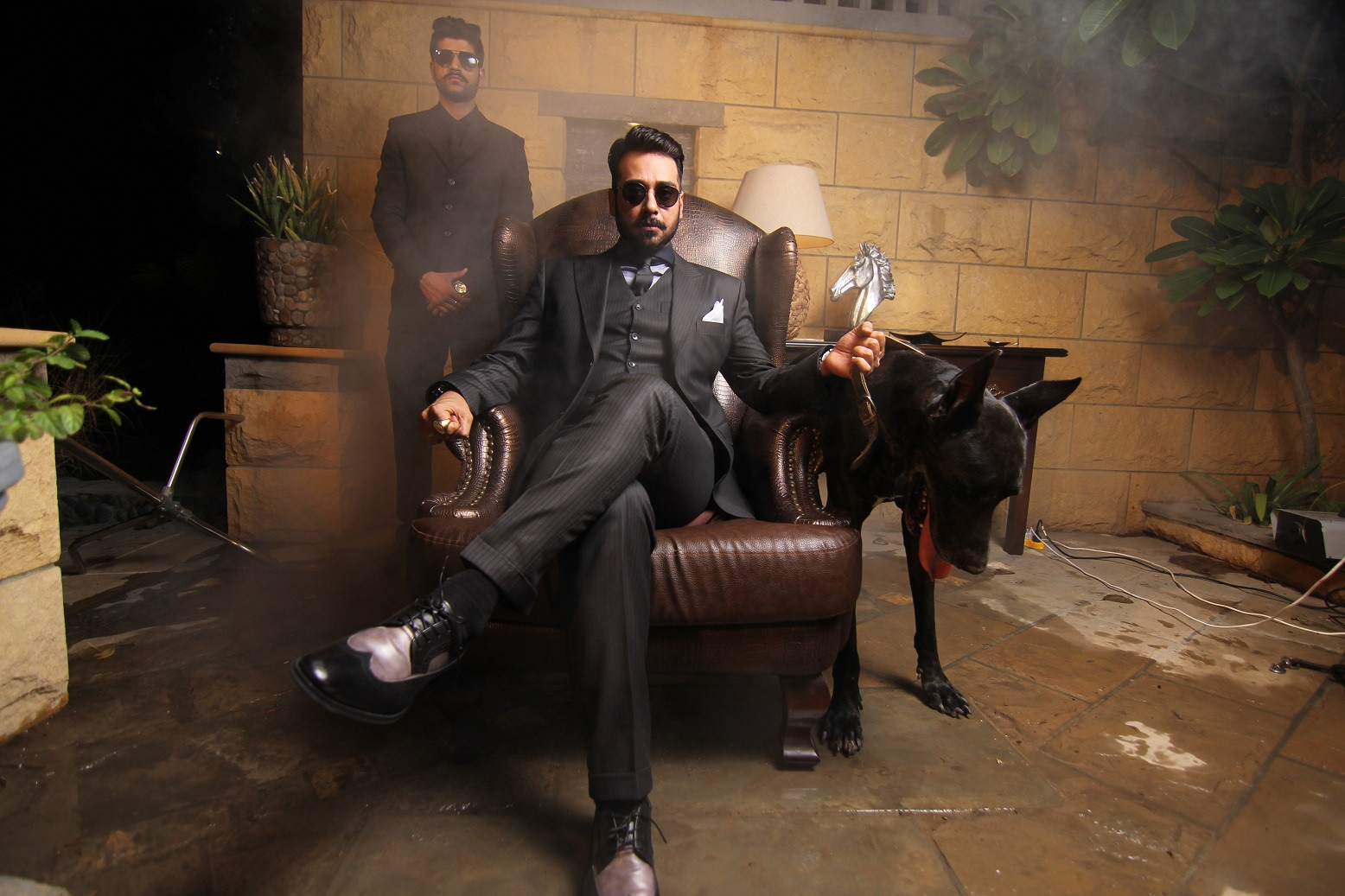Cry for the camera: Experts weigh in on violence on TV
TV serial 'Gul-e-Rana' sees Adeel (Feroze), a rich spoilt man, marry Gul-e-Rana (Sajal) to exact revenge

Dramas, whether on stage or on television, have the power to captivate audiences and convey important messages.
By portraying relatable characters and situations, they can make audiences feel deeply and empathise with the story. On the contrary, if this power is used negatively, then it can lead to perpetuating stereotypes, normalising negative behaviour, and distorting society and culture. Such is the case with Pakistani dramas as well.
Gul e Rana, Kaisa Hai Naseeban, Dil e Veeran, Muqadar and Bashar Momin are some of the cruel examples of not only whitewashing crimes against women but also normalising Stockholm Syndrome; a psychological condition under which people develop positive feelings toward their captors or abusers over time.
The question that arises here is, why is it, that in the 21st century, our dramas are still treading the same path rather than changing the course for something better and positive which can help to improve society?
1679724008-0/guleranaET-(2)1679724008-0.png)
While speaking to APP, veteran actor and legend of the Pakistani drama industry, Samina Ahmad stated: “Domestic violence, abuse and crimes against women do exist in our society and must be portrayed in dramas as well but what result we show in the end is the essence of the story. If the story is normalising such acts without showing any consequences, then it’s actually reinforcing the act in the society.”
She added, “Television has excessively become commercialised and there is a race going on to catch eyeballs. TRPs, followers and million views lead to businesses deciding the base of such drama due to which, in a society like ours, where the majority of people are less educated and suffering from the same social issues, they start to relate themselves with these stories, ultimately giving the views and ratings for such dramas.”
Media practitioners and experts have a firm stance that media has a very strong impact and people tend to follow the trends created by media perhaps knowingly or unknowingly.
“Just like in conventional media, if fake news is continuously hammered then people start to buy that propaganda and fake news as reality. Same is the case with entertainment media; if negative content is consecutively being portrayed in dramas, then it will likely become a reality and a common thing for its audience,” stated senior journalist Zulqernain Tahir, who’s also a visiting faculty member at the Punjab School of Communication Studies. “If entertainment media is free from the return of investment obsession, then it will truly serve the definition of performing arts,” he added.
“It is an established theory that whatever is shown in the media, people perceive it as real and get themselves emotionally attached to the actors and stories and eventually many try to implement the scenarios seen in dramas, which is why dramas can create a long-lasting effect,” opined Abdul Rehman Qaisar, an assistant professor of Communication and Media Studies at the University of Sargodha.
Samina Ahmad went on to comment, “Dramas can bring a change in real life by showing how, as an individual, we can eliminate the ills of society rather than surrendering to it. For this, we need to target the ones who hold the power as creators, producers and project heads. We need to start making some difficult decisions as creators.”
On that note, Ali Imran, Content Head at a private media channel, stated,
“I would never justify stories in which abuse, crime, or other issues are being glorified but we should also accept the fact that these stories are the real reflection of our society. Sometimes, chaos also brings a new shade of hope, so by portraying regular stories we try to at least highlight what’s actually going on for society to become more aware and cautious. As of now, if we compare our society to how it was 10 years ago, we will observe that people have started questioning abuse, violence, and mistreatment of women in real life because these issues are being highlighted in dramas. But I do agree that when we are showing any such story, it should come with a disclaimer.”

Noman Yaser, Department In-charge of Communication & Media Studies, University of Sargodha (UoS), told APP, “Regulatory bodies all around the world play an important role but unfortunately, it’s not the same here due to multiple reasons. With cross-media ownerships being the biggest, we have conglomerates all around the media industry. Thus, there are fewer independent media, resulting in the lack of different viewpoints and vocalization about various social issues, ultimately hijacking the good content in the race of profit making which needs to be changed.”
“We can’t stop the dramas or story narration at all but what we can do is to go for opting media literacy,” suggested Abdul Rehman Qaisar, Assistant Professor UoS. “There should be media literacy programmes to create awareness about media content and how it can be improved. When the audience will be aware they will uprightly reject the bad content which will mould the media industry to create good content.”
Women’s rights activist and former chairperson NCSW, Khawar Mumtaz said, “We can only change when we decide what actually we want from our society, either we want it to remain as bad as it is by showing degradation, discouragement & crimes towards women as a normal practice or we want to pull out our society from all such evils by showing the consequences of all such acts & paving out a way forwards for women to cope with it bravely.”
Have something to add? Share it below in the comments.



















COMMENTS
Comments are moderated and generally will be posted if they are on-topic and not abusive.
For more information, please see our Comments FAQ